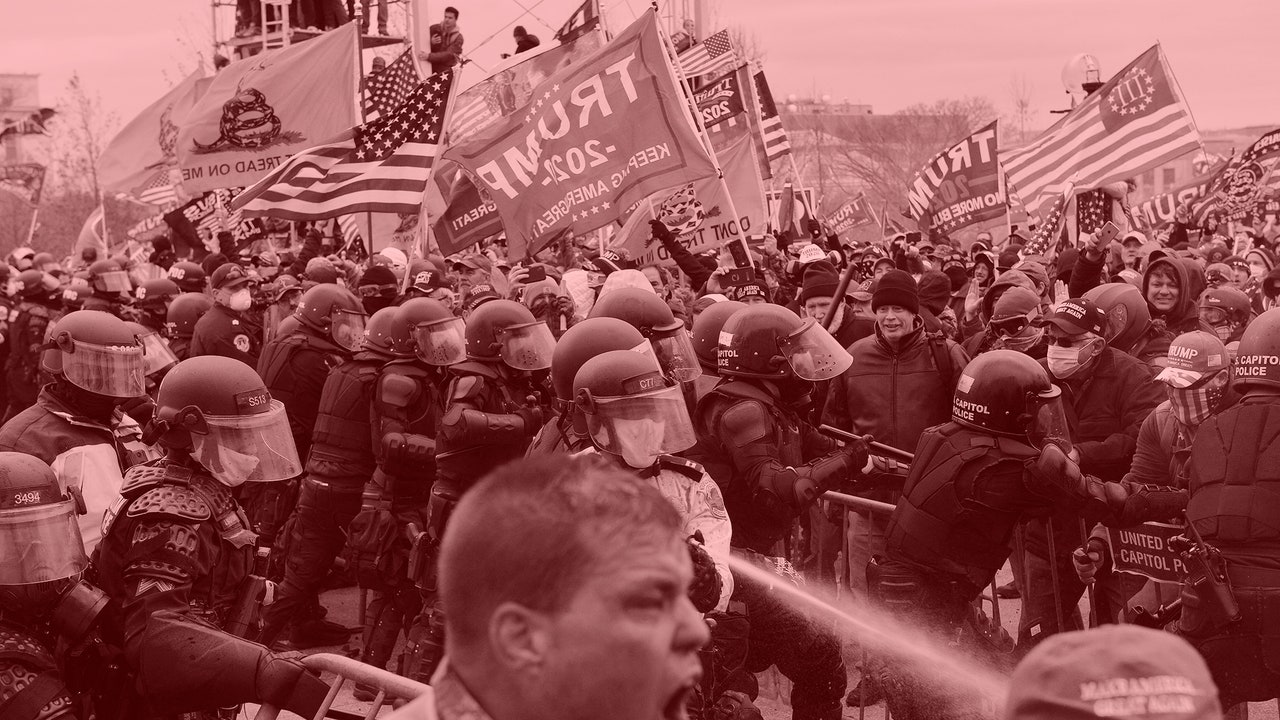Civil War Is “on the Table”: Jeff Sharlet on the Martyrdom of Ashli Babbitt and What’s to Come

This week Vanity Fair contributing editor Jeff Sharlet joins Inside the Hive to talk about his journey into the far-right world of January 6 insurrectionists, QAnon-ers, and Trump cultists—who they are, what they’re saying, what they believe, and what their still-growing movement might portend (including the specter of civil war in America). Such a prospect, says Sharlet, is “scarier than it’s ever been.”
Also: Willem Marx, a London-based contributor to Vanity Fair, discusses the fall of British prime minister Boris Johnson, as well as his latest report on the undue influence of Putin-connected Russian oligarchs on the British establishment—including, allegedly, Johnson himself.
Content
This content can also be viewed on the site it originates from.
A condensed and edited version of the conversation with Sharlet follows.
Vanity Fair: As somebody on the front lines of [the far-right movement], how frightening to you is the prospect of civil war?
Jeff Sharlet: Scarier than it’s ever been. I mean, the young son of a friend, when I stopped on the way to meet a militia commander, says, “Why would you talk to a Nazi?” It’s kind of a good, sensible question. But I think I’m driven by a certain counterphobia. Ten years ago the idea of civil war in the United States was absurd. I still think it’s not inevitable or maybe even likely, but it’s definitely on the table and there’s definitely people preparing for it. And it makes me feel, weirdly, almost a little more comfortable to go and see it. Until you get too close! There’s the church I mentioned in Omaha. When they saw that I was speaking to some of the members of the church, a man in full tactical gear, armed, came out with a church usher, and the church usher says, “You’re not allowed to talk to our members.” [I said], “You don’t actually control them and we’re not on your property.” It didn’t matter to him. And I said, “You brought a man with a gun. I’ve got a notebook, and you brought a man with a gun.” And he just leans in and he says, “I didn’t bring a man with a gun. How do you know I don’t have a gun?”
There were no honest reporters; I was the enemy and I was in trouble. And that was terrifying. I have to say, I had never been threatened with guns at a church before in my years reporting. [Being threatened with a gun] is uncommon, but it happens.
Can we even call the proliferation of far-right groups and QAnon believers a “fringe” at this point?
The fringe has become the center. And I think that’s sort of why it matters to me to keep looking at this stuff. And I think there’s people who say, the thing that every journalist says is, “Why don’t you tell stories about people who are doing good things?” But there’s also people who say, you know, “I know everything I need to know about these guys. I don’t need to know anything about them.” And I don’t think that’s true. I think what’s happening right now and this kind of global fascist moment is a great broad convergence of many tributaries, many strands. It’s not a monolith. That’s part of what makes it so dangerous—there are so many pieces of it, and to resist it, we have to map it.


